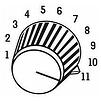 In September, the International Chamber of Commerce (ICC) released its publication of Incoterms 2010. Short for International Commercial Terms, Incoterms are a series of internationally recognized standardized trade terms published by the ICC. These terms help to clarifying the tasks, costs and risks involved in the delivery of goods from sellers to buyers. Incoterms also help to define the responsibilities of the buyer and sell and clearly define which party carries the risk during the exchange of goods.
In September, the International Chamber of Commerce (ICC) released its publication of Incoterms 2010. Short for International Commercial Terms, Incoterms are a series of internationally recognized standardized trade terms published by the ICC. These terms help to clarifying the tasks, costs and risks involved in the delivery of goods from sellers to buyers. Incoterms also help to define the responsibilities of the buyer and sell and clearly define which party carries the risk during the exchange of goods.
The ICC regularly monitors the list of Incoterms and publishes updates every about every ten years to ensure that the terms accurately reflect current business practices. The previous list of terms was published in 2000 and this latest update will go into effect on Jan. 1, 2011. Staying up to date on the current list of incoterms is important to avoid costly misunderstandings when entering into international trade contracts.
In case you haven’t learned the previous group of Incoterms, your in luck, one of the most noticeable changes is that the list of terms has been lowered to 11 from 13. The 2000 Incoterms DAF, DES, DEQ, and DDU have been eliminated and have been replaced by two new terms, Delivered at Terminal (DAT) and Delivered at Place (DAP).
Additionally, instead grouping the terms into four classes, the 2010 Incoterms will be separated into 2 groups: those applicable to all modes of transport and those only applicable to sea and inland waterway transport.
Here is the list of 2010 Incoterms:
Incoterms 2010 applicable for all modes of transport:
- EXW : ex works
- FCA : free carrier
- CPT : carriage paid to
- CIP : carriage and insurance paid to
- DDP : delivered duty paid
- DAT : delivered at terminal – NEW!
- DAP : delivered at place – NEW!
Incoterms 2010 only applicable for sea and inland waterway transport:
- FAS : free alongside ship
- FOB : free on board
- CFR : cost and freight
- CIF : cost, insurance and freight
Additional updates include new provisions related to cargo security. The previous list was released before 9/11 and the increased security messages placed on international trade since then. The 2010 Intoterms doesn’t outline specific measures that buyer and sellers must take in regards to security. Instead it speaks in broad terms about the need for all involved parties to clearly define responsibility. In a corollary to the new security provisions the Incoterms 2010 also stresses the importance of insurance and that buyers and sellers need to clearly define insurance issues in their contracts as well.
To find out all the details about the changes you can get a copy of the official Incoterms 2010 book which is available at www.iccincoterms2010.org. The ICC is also hosting a series of seminars in cities across the US discussing the incoterms and new provision in detail.
Carrie Brown
